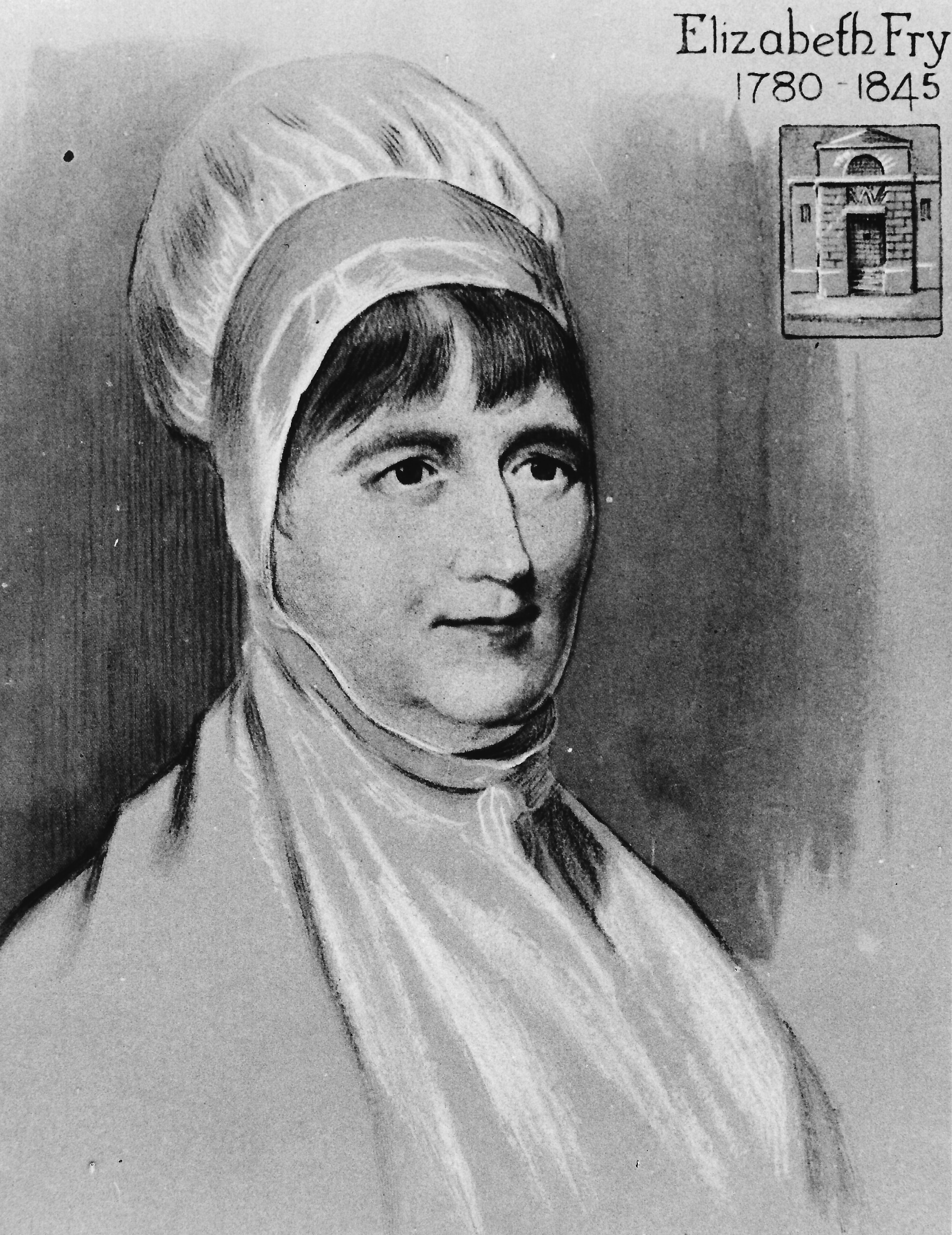Individuals

Elizabeth Fry
Elizabeth Fry was a preacher and political reformer. She was born in Norwich in 1780 to the Gurneys, a wealthy Quaker family. Elizabeth became a member of Plain Friends, a strict religious sect who dressed modestly and refrained from singing and dancing. She was inspired by the preaching of William Savery to devote her life to helping the needy. She visited the sick, collected clothes for the poor and ran Sunday schools to teach reading. In 1799 she met Joseph Fry. They married in 1800 and she moved to his family home in Plashed, now East Ham.
Following a visit to Newgate prison Eliabeth found women and children crammed thirty to a cell, sleeping on the floor in rows without nightclothes or bedding, and who cooked and washed in the same squalid conditions. Some women were still waiting to be tried. Eliabeth felt something had to be done. She supplied clothing, established a prison school, chapel and matrons to supervise. In 1817, Eliabeth and other Quakers established the Association for the Improvement of the Female Prisoners in Newgate. Her brother-in-law, Thomas Fowell-Buxton, was an MP and raised the issue in the House of Commons. Eliabeth was invited to give evidence to a Commons Committee on prisons. She advocated for a more humane treatment of prisoners, suggesting prison rules were voted on by prisoners, and opposed capital punishment.
In the early 19th century people could be executed for hundreds of minor offences. For example, Harriet Skelton was sentenced to death after her husband pressured her to pass on forged banknotes. Elizabeth and her brother, Joseph Gurney, begged Home Secretary Lord Sidmouth to repeal the verdict. He refused. Some MPs saw Eliabeth as a dangerous radical. However, the new Home Secretary, Sir Robert Peel was supportive. The 1823 Gaols Act introduced chaplain visits, female warders for women’s prisons and paid gaolers (previously, prisoners had to pay for guards themselves).
By the 1820s Fry was a well-known, respected figure, consulted by important men for her professional opinion. This was very unusual for women, but she still couldn’t escape rigid gender expectations. The press attacked her, claiming she was neglecting her family duties. In 1824 Fry was shocked by Brighton’s widespread poverty. She founded the Brighton District Visiting Society, a volunteer team providing help for the poor. District Visiting Societies were then set up across Britain. In 1840 Fry created a nursing school at Guy’s Hospital. Her nurses wore matching uniforms and tended to patients’ spiritual and physical needs. Elizabeth Fry created lasting improvements for Britain and changed the status of women in society. Florence Nightingale was inspired by her medical work and took a group of Fry nurses to the Crimean War. Queen Victoria was a great admirer and helped fund her charitable work.
Elizabeth Fry died on 12th October 1845. Although Quakers do not hold funeral services, over a thousand people attended her burial in Barking, a testament to the great legacy she left.
Image: Elizabeth Fry, Courtesy of Newham Archives


